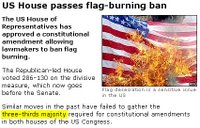 “The role of the president as Commander in Chief is to direct our armed forces in carrying out policies established by the American people through their representatives in Congress. He is not authorized to make those policies. He is an administrator, not a policy maker. Foreign policy, like all federal policy, must be made by Congress. To allow otherwise is to act in contravention of the Constitution. Library of Congress scholar Louis Fisher, writing in The Oxford Companion to American Military History, summarizes presidential war power:
“The role of the president as Commander in Chief is to direct our armed forces in carrying out policies established by the American people through their representatives in Congress. He is not authorized to make those policies. He is an administrator, not a policy maker. Foreign policy, like all federal policy, must be made by Congress. To allow otherwise is to act in contravention of the Constitution. Library of Congress scholar Louis Fisher, writing in The Oxford Companion to American Military History, summarizes presidential war power: The president's authority was carefully constrained. The power to repel sudden attacks represented an emergency measure that allowed the president, when Congress was not in session, to take actions necessary to repel sudden attacks either against the mainland of the United States or against American troops abroad. It did not authorize the president to take the country into full-scale war or mount an offensive attack against another nation.
But it’s not simply the decision to wage war that is left to Congress. Consider also the words of James Madison:
Those who are to conduct a war cannot in the nature of things, be proper or safe judges, whether a war ought to be commenced, continued, or concluded. They are barred from the latter functions by a great principle in free government, analogous to that which separates the sword from the purse, or the power of executing from the power of enacting laws (italics added).
So Congress is charged not only with deciding when to go to war, but also how to conduct – and bring to a conclusion – properly declared wars.”
No comments:
Post a Comment